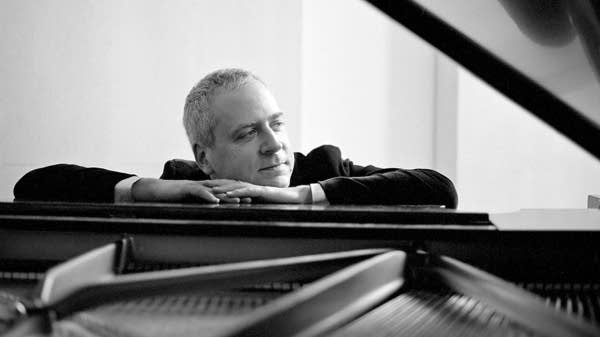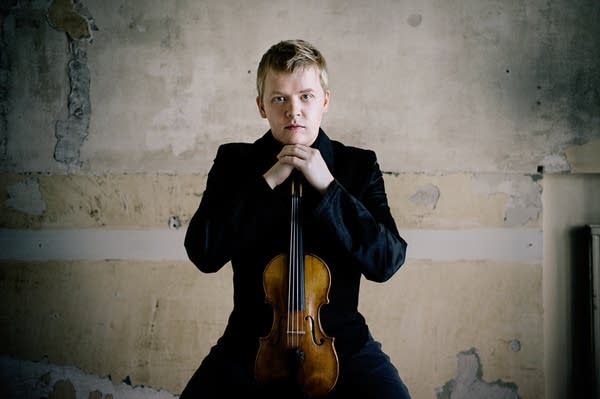Alison Young will host a preconcert discussion before the opening night concert of the Saint Paul Chamber Orchestra season at 7 p.m. Friday, Sept 7, on the stage of the Ordway Concert Hall in St. Paul. Then she will host Classical MPR's live broadcast of the concert at 8 p.m. Saturday, Sept. 8. Listen to Classical MPR at 11 a.m. every Friday for the SPCO Spotlight, too.
Jeremy Denk pretty much ignores the fact that Beethoven's Emperor Concerto is a "warhorse" played thousands of times per year and recorded just as many. It's one of his favorite pieces and never loses its musical interest and sheer delight.
"I find whatever pleasure I get from it has to do with this mixture of the kind of narrative, the heroic, driving Beethoven and this unbelievable attention to color or beauty for its own sake, the way the piece slides from sort of narrative to lusciousness," he says about the work that he will be performing this weekend with the Saint Paul Chamber Orchestra.
Beginning with a cadenza, there is something simple and architectural about the opening, written by a composer who was stone deaf but could still conjure the feel of sound. Beethoven gives us the most basic chords of all music, the tonic, the sub-dominant and the dominant. If this sounds too academic, just think of singing "Happy Birthday," and you've got the harmonic structure of Beethoven's Emperor.
But in simplicity, he creates magic, a statement, something revolutionary. The first movement is Olympian in proportions, noble and full of grandeur and it leads to a slow movement that is one of the most tender pieces of music ever written — solemn, yet simple, heavenly, yet with a feeling of the earthbound, of our common humanity, and presented in the way only Beethoven could do. Denk says that even with Beethoven's deafness, the composer seems to be exploring sound more deeply, and make the piano ring in ways that no one else could do.
One of the Beethoven paradoxes is that as he became deafer, the music seems to become more about sound for its own sake. In the slow movement at the beginning, when the piano comes in, there's nothing more beautiful coloristicly than this shimmering way he uses the piano. It's like an homage or essay about or re-creations of things he cannot really experience anymore.
But after basking in the slow movement, the finale is Beethoven in all his raucousness, a drinking song that's jovial and loose. And, Denk points out, this rambunctious side of Beethoven is a wholly different kind of joy.
Also on the program, rising star soprano Julia Bullock makes her SPCO debut in Barber's Knoxville Summer 1915 and the musician-led orchestra members present the groundbreaking work of the minimalist movement, Terry Riley's In C.
Love the music?
Show your support by making a gift to YourClassical.
Each day, we’re here for you with thoughtful streams that set the tone for your day – not to mention the stories and programs that inspire you to new discovery and help you explore the music you love.
YourClassical is available for free, because we are listener-supported public media. Take a moment to make your gift today.








